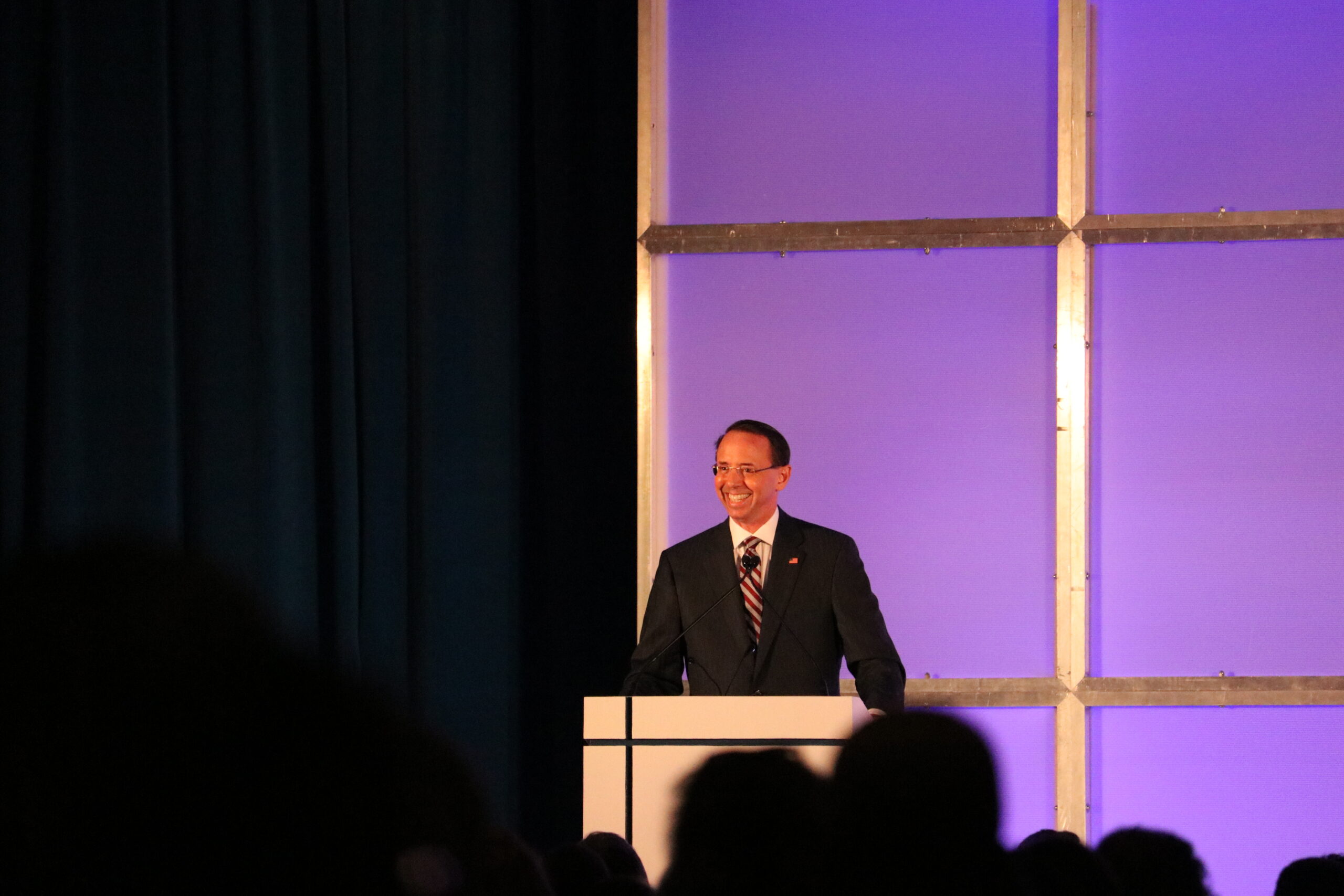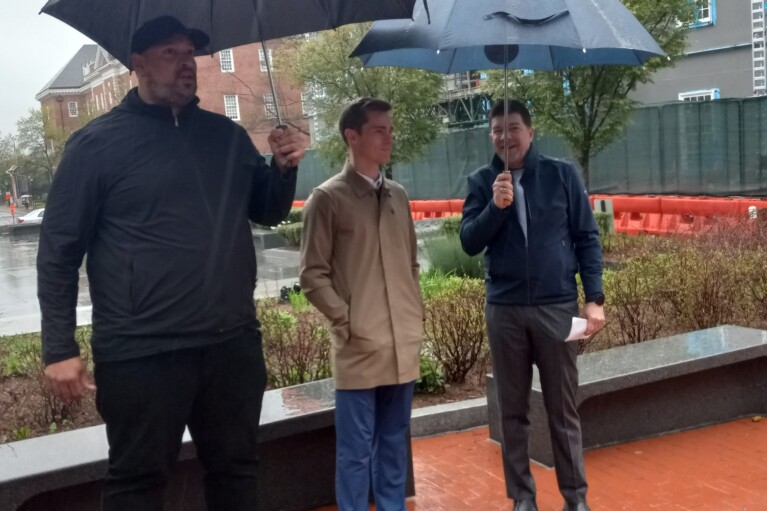
In some of his first public comments after leaving the Justice Department last week, former Deputy U.S. Attorney General Rod Rosenstein said he made the best decisions he could under difficult circumstances – and revealed more details about the firing of former FBI Director James Comey, who Rosenstein said has become a “political pundit.”
Before a crowd of 1,000 at an annual Greater Baltimore Committee dinner on Monday night, blocks from the federal courthouse where he served as Maryland’s U.S. attorney for more than a decade, Rosenstein said he took a few hits during his tenure atop the Justice Department, but stood by the decisions he made.
“I think we made the right calls on the things that mattered,” he said.
Rosenstein said he was confident in the decision to appoint a special counsel to probe Russian meddling in the 2016 U.S. elections.
“It was a very important investigation. If it was not done correctly, there would always be lingering doubts about the scope of Russian efforts and about the extent of American involvement,” said Rosenstein, who also recounted in greater detail Comey’s firing, seen by many as President Donald Trump’s attempt to thwart the Russia investigation.
“I would never have allowed anyone to interfere in that investigation,” Rosenstein said, noting that he had been at the Justice Department for a quarter century and knew how a criminal investigation should be run.
“Nobody said that the removal was intended to influence the course of the investigation,” Rosenstein said.
He said Trump showed him a letter detailing the president’s reasons for removing Comey, “and then he told me to deliver a memorandum to the attorney general with my concerns about the director’s conduct the following morning. He did not tell me what reasons to put in my memo.”
Throughout his remarks, Rosenstein used descriptions from the special counsel’s report to describe events that happened to or involved him.
“The special counsel’s report states the president asked me to mention in my memo that the FBI director had told him that he was not under investigation, the same language that ultimately appeared in the president’s public letter,” Rosenstein told the crowd. “I didn’t include it in my memo because, No. 1, I had no personal knowledge of what the director said to the president. And No. 2, in any event, it was not relevant to my memo.”
Rosenstein said he never disliked Comey and didn’t want to rush to judgment, but some of Comey’s actions, including holding a news conference in the heat of election season about an investigation into Hillary Clinton’s email practices and delivering an election eve letter to Congress, crossed “bright lines that should not be crossed.”
“Those actions, in my view, were not in the realm of reasonable decisions,” Rosenstein said, saying they conflicted with expectations that FBI agents should respect prosecutorial decisions, avoid disparaging people not charged with crimes and never take unnecessary steps that could be perceived as influencing an election.
If he’d been asked to make a recommendation before Trump had decided to remove Comey, Rosenstein said he would have included a more balanced analysis.
“If I had been the decision-maker, the removal would have been handled differently, with far more respect and far less drama,” Rosenstein said. “So I do not blame the former director for being angry. I would be too, if I were in his shoes. But now the former director seems to be acting as a partisan pundit, selling books and earning speaking fees while speculating about the strength of my character and the fate of my immortal soul.”
“…That is disappointing. Speculating about souls is not a job for police and prosecutors. Generally, we base our opinions on eyewitness testimony.”
Rosenstein said Comey’s firing did not ultimately influence the investigation.
Rosenstein also warned about the use of special and independent counsels in the future, noting that Attorney General William Barr, who previously held the post for 14 months from 1991 to 1993, appointed three special counsels and an independent counsel during that time, “even though, in one case, he could never quite understand what the allegation was.”
“We should only appoint special counsels when necessary,” Rosenstein said. “…I disfavor special counsels because I am an advocate of the career men and women at the Department of Justice and I have confidence in their independence. I’m glad I only had to appoint one special counsel in 25 months.”
As acting attorney general, the special counsel he appointed served to ensure an independent investigation – in fact and in perception, Rosenstein said.
“As a result, our nation is safer, elections are more secure. The citizens are better informed about covert foreign influence schemes,” Rosenstein said. “But not everybody is happy with my decisions, in case you didn’t notice. I believe I made the right decisions.”
He briefly touched on the time spent speculating about his political affiliations based on incremental decisions and said he challenged himself as a prosecutor to always consider whether he would act differently if the political affiliations were reversed.
Rosenstein concluded that he and his colleagues operated every day without regard to party affiliation.
“I was always on the same team. I was on the American team,” he said.




 Creative Commons Attribution
Creative Commons Attribution